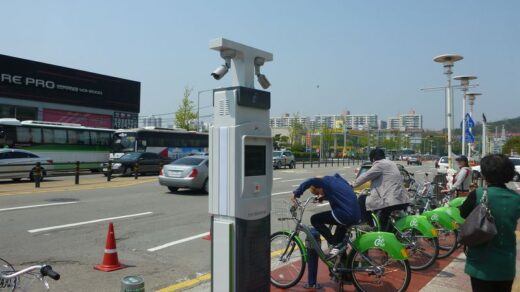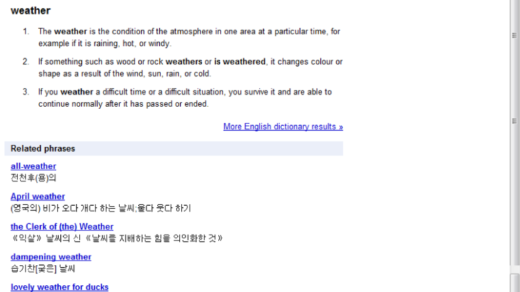
KBC Intern Jared Muloongo interviewed executive recruiter William Sisson [EXPIRED LINK REMOVED: https://stevenbammel.com/category/archives/kbcprofile/WilliamSisson] as part of his research in preparing the report “A Map to a Career in Korea: What You Need to Know!”. The following is the original Q&A for the interview.
For links to this and other interviews in the series, visit Supplementary Materials for A Map to a Career in Korea: What You Need to Know!”
Ten Keys to Master that Will Put You in Front When Finding a Job in Korea
***Please note that the comments are from my 5 years of recruiting experience and are for professional level positions/candidates only.
1. Does GPA / great academic results matter when applying for a job in Korea?
GPA and academic results do matter when applying for a job in Korea depending on the level of the position and the company. In some cases the actual university attended matters as some companies will only accept candidates who graduated from top 10 or Ivy League listed universities. This usually matters when they are looking for a speciality candidate i.e. Law School, MBA or Engineering graduate. For more senior level or C-Level candidates university records usually do not matter.
2. Korea is big on ‘Woori’ so when hiring an individual does personality matter? What kind of personality is needed to be able to work in a Korean firm?
Absolutely, 100% personality matters and can be a deal breaker and your candidacy dropped if any of the following occurs during the process;
- The candidate seems arrogant, boisterous and over proud
- The candidate is unwilling to produce evidence of current or past compensation and other records and documentation
- The candidate does not show some humility during the interview process
- The candidate is loud, overbearing and non-business like
- The candidate seems to not “fit into the company culture” – able to get along with co-workers or does not seem able to fit into a hierarchy based company.
- The candidate seems, is or acts to young (immature) or to old (based on direct report’s age)
- The candidate has visual tattoos, piercings or other unique appearances
- The candidate has no knowledge of Korea or its culture and past history i.e. Financial Crisis in 1997, Japan occupation, etc…
- The candidate is clueless on global current affairs especially pertaining to Korea and Korean companies i.e. Samsung –vs. – Apple etc…
- The candidate has no knowledge of the companies past or current history, products, growth, executives, markets etc…
- The candidate is not willing to submit to health checks, work long hours and have dinner with co-workers without prior notice. (not in every case but be prepared)
- The candidate is unwilling to be “open” about their personal lives – i.e. marital status, religion, blood type, weight, etc… at one point all of these will be asked by someone
3. How does one get noticed or become visible to Hiring managers in Korea?
The main way for a foreigner to become visible to a hiring manager is through a personal introduction which is held in higher regards if it comes from a Korean. How does this occur? Networking. Building, establishing and maintaining your social and business network is the best way to get a job in Korea even if you are currently out of the country. If you must take a lower paying or level job once you are in Korea then start developing this network and sooner or later positions will open up. Developing relationships in Korea is “key” to building mutual trust, relationships and understanding with others. If your network only consists of expats who are from your home country your chances of landing a great job is limited. Reach out and kindle relationships among the Korean community. You might be very surprised of who they or someone they know might have direct contact with.
4. How does one utilize the network they gain wisely in order to gain a Job? Now that you have a network and you are maintaining it. What do you do?
Communicate frequently – but NOT on the same level as a stalker, beggar or a desperate soul. In my business network I send out a quarterly newsletter that is a mixture of business and personal reflections of the quarter. Because it is a global network I often include some current events or my experiences in Korea.
Other things to do would be if you hear that someone received a promotion, send them a congratulatory note, if you have some simple question ask them directly via email, invite to meet them for lunch or coffee just to introduce yourself. And again – be very tactful, professional and business like even if dinner and drinks are involved. You may know it or not but you are being sized-up, evaluated and assessed by your on-line actions including email communication, social network “comments” and your face-to-face interactions.
5. What are some great resources to have and to use in gaining a job in Korea?
a. KBC is a great resource how would you as a hiring manger look for potential candidates to hire?
KBC could be used to look for potential candidates. However, as the system is not established to target certain criteria – a general “Discussion” must be submitted. What happens then is that many unqualified people contact me and I must take time to review their resume and then respond and deny their acceptance. If I used KBC I would ask for referrals of only qualified people for specific positions.
b. How can potential candidates use a resource like KBC in your opinion to get noticed?
Getting noticed is not the problem; being qualified is the problem.
If KBC wants to assist its members in finding jobs then KBC needs to market to HR and hiring managers the benefits of viewing the site including ways to search and contact members. Not socially as “friends” but based on their posted resumes. But please note – an HR manager is not going to take the time to sift through resumes without some sort of key word search or a system that will weed out the unqualified.
6. What kinds of resumes/ C.V’s get noticed in Korea?
a. Which people should be reading my resumes in order to help me gain an advantage in Korea?
b. What things can one do to their Resume / CV to get noticed?
I am going to combine both of these questions as they are very closely related and dependent upon each other. A) I am not sure who you mean “should be reading my resume” but I am going to assume the following – have your resume reviewed, edited and commented on by someone other than yourself. Errors in English spelling and grammar are unacceptable if you are an English speaker. If you really want to make an impression then get your resume translated into Korean. It will double your chances if the HR person does not have strong English language skills. Keep your resume short, simple and to the point. Keep it business focused and only put business related experience on the resume itself.
Structure should be very simple;
Dates of employment Title Company Location
- Achievements – not your job description but what you actually achieved doing this work.
- Keep the sentences short – on a resume they do not have to be complete
- Uses bulleted points. Saves time for the HR person
At the top of the resume use a Qualifications and/or Summary sections where you show in total years of experience what you have achieved. For example;
Qualification Summary
Customer Services & Relations – 7 years
International Marketing – 5 years
Business Development – 2 years
I have attached a presentation that describes all of the above and more.
7. There is no substitute for practice before an interview, what can individuals expect to be asked when applying for a job in Korea? Do you have 5 easy tips for them to remember? (Sorry more then 5)
My tip on interviews is to – Practice, Practice, and Practice.
If you are not a good at interviewing then get your friends, family or class mates to practice interviewing your. Record your answers and play them back. Practice in front of a mirror. Take notice of any non-verbal actions that you do i.e. play with your hair, rub your nose, use your hands to much etc… all of these are being read by the person interviewing you and can be distracting. Keep your answers short and to the point.
Log onto the internet and research interview skills, watch videos on YouTube etc. There are many common interview questions and you can find sample answers on the internet. Korean interviews usually include basically the same questions as any other interview. However, be prepared, in some cases as I mentioned before, to answer personal questions that in other countries might be deemed as inappropriate.
8. What positions should individuals seek to apply to when they are trying to get into the Korean job market? Any recommendations for individuals with very little work experience?
This question is very tricky as “very little work experience” can be a plus or a big disadvantage – it all depends on what the company is looking to hire and the age range they are looking for. Many of the large companies have spring and autumn hiring sprees when it is the time to bring aboard fresh graduates with little or no experience. Keep track of these on the company’s web page.
But don’t forget that what sets you apart from a Korean who is applying for the same position is not only possibly global experience but Language skills. Korean companies are first going to hire Koreans – makes perfect sense. However, if you can bring a useful skill, such as your native language into the company, you now have a better advantage over the competition.
9. We know work experience is a factor in getting hired, when individuals have little or no experience what can they include in their Resumes to show that they have the necessary skills to make up for the lack of work experience?
The ones who get the job? – are proactive in their job search, have completed industry related internships in their home countries or abroad – especially with a Korean company and have Korean language skills is highly desirable. Having some knowledge of Korean will take you very far in your career development in this country.
10. What things should foreigners expect to find when they get a job in Korea? The reason behind the question is to gain an extra advantage by being able to show a unique understanding of the Korean work environment.
Working in Korea can be very rewarding and a life-changing experience. Many foreigners who have an opportunity find out that it is not as easy as they thought it would be. If you keep an open mind, accept and acclimate yourself to Korean social and business culture your time in Korea will be very fulfilling. Koreans have the “Korean way of doing things” and many expats have tried to change them. Gradually Korean companies are taking notice that the Korean way is not always the best way to do business nor is it acceptable in the global market. Korean business culture is still developing, growing and in the next few years and may finally be considered a part of internationally accepted standards.






